10 Best Magic Fruits To Prevent Cancer And Fact-Check
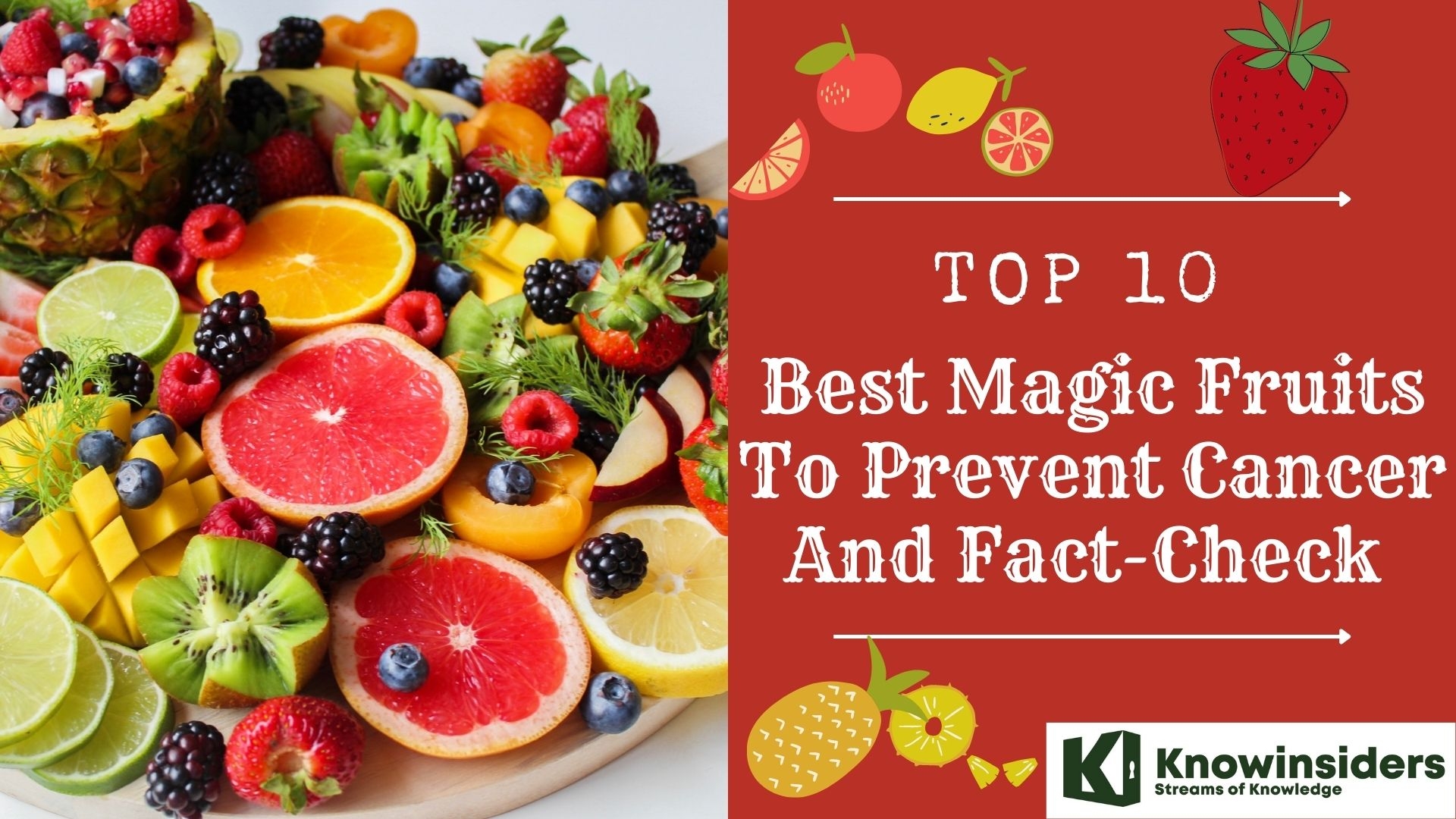 |
| Top 10 Best Magic Fruits To Prevent Cancer And Fact-Check Knowinsiders.com |
It’s no secret that your diet can affect your risk of developing cancer.
Similarly, filling up on healthy foods is important if you are being treated for or recovering from cancer.
Certain foods, including fruits, contain health-promoting compounds that may slow tumor growth and reduce certain side effects of treatment to help ease your road to recovery.
Fruit is a food that provides many essential nutrients for the body. Certain fruits such as oranges, tangerines, pineapples and pears can contribute to the prevention of various types of cancer and strengthen the body's resistance against disease. For those who are in the process of cancer treatment, it is necessary to be wise when choosing the right fruits for their condition in order to best support the treatment of the disease.
Why Should Cancer Patients Eat More Fruits?
Experts all recommend that a diet with lots of fruits and vegetables is very good for your health. In particular, there are some fruits with outstanding benefits that can help cancer patients improve and prevent disease recurrence.
Fruit is considered a source of many essential nutrients for patients undergoing cancer treatment. The fruits that are good for cancer patients also contribute to alleviating unpleasant symptoms caused by cancer and its treatments. Here are some fruits that are recommended by nutritionists for each specific case of cancer patients, including:
Nausea and vomiting: Cancer patients with these symptoms should eat these foods. canned fruits, peaches, apple sauce and other soft fruits. Constipation: Cancer patients who are constipated should eat dried fruit, fresh fruit or prune juice. Diarrhea: Cancer patients with diarrhea should drink fruit juices, supplemented with fruits such as apples and bananas. Anorexia: For cancer patients with symptoms of anorexia, choose high-calorie foods, including fruit smoothies and dried fruit. Mouth sores: Patients should opt for fruit juices such as apple juice, apple sauce or canned fruit.
Citrus Fruit
Citrus fruit, like grapefruits and oranges, may have a role in preventing certain cancers. One large study in Japan found that people who had citrus fruits or juices 3-4 days a week were less likely to get cancer than those who had them 2 or fewer days a week.
Though the research results aren't clear-cut, they show that citrus might help fend off several types of cancer:
→ Cancers of the digestive tract, like colon cancer
→ Cancers of the respiratory tract, like lung cancer
→ Pancreatic cancer
→ Prostate cancer
→ Breast cancer
→ Nasopharyngeal cancer, a type of head and neck cancer
→ Cutaneous melanoma, a type of skin cancer
Apples and Other 'White' Fruit
At least one meta-analysis -- a study that looks at lots of previous research on a subject -- linked apples with a reduced risk for cancer. The link seems strongest for lung cancer. But apples may also help protect against:
→ Breast cancer
→ Colorectal cancer
→ Other cancers of the digestive tract
Another study found that eating white vegetables and fruits, like apples, pears, mushrooms, and onions, may help protect against colorectal cancer. (Apples and pears are considered white because of their flesh.)
The possible benefit from apples probably comes from two substances they contain: polysaccharides, a type of carbohydrate, and quercetin, a plant pigment. Both may help fight cancer cells.
Green Fruits
Green fruits may help protect against colorectal cancer, according to the same study that looked at white fruits and veggies. Green fruits include:
→ Kiwifruit
→ Honeydew melon
→ Green grapes
Other research also suggests kiwifruit may help prevent cancer. That's partly because of the fruit’s antioxidants, and partly because kiwifruit promotes a healthy gut.
Dried Fruit
Dried fruit like prunes and raisins can be a healthy choice. Research shows that regularly eating dried fruit may help ward off some types of cancer. It might also help keep cancer from getting worse.
Eating three to five servings of dried fruits a week may help prevent:
Colorectal polyps, growths in your large intestine that aren't cancerous but could eventually turn into cancer
→ Prostate cancer
→ Death from pancreatic cancer
→ Stomach cancer
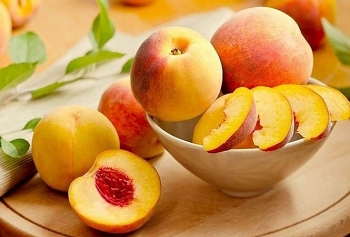 Fact-Check: Peaches Are the Best Fruit to Prevent and Treat Cancer Fact-Check: Peaches Are the Best Fruit to Prevent and Treat Cancer Peaches are classified as one of the best anti-cancer fruids today, according to modern medicine and ancient experience. |
Top 10 Super Fruits to Help Fighting Cancer and Fact-Check
1. Blueberries
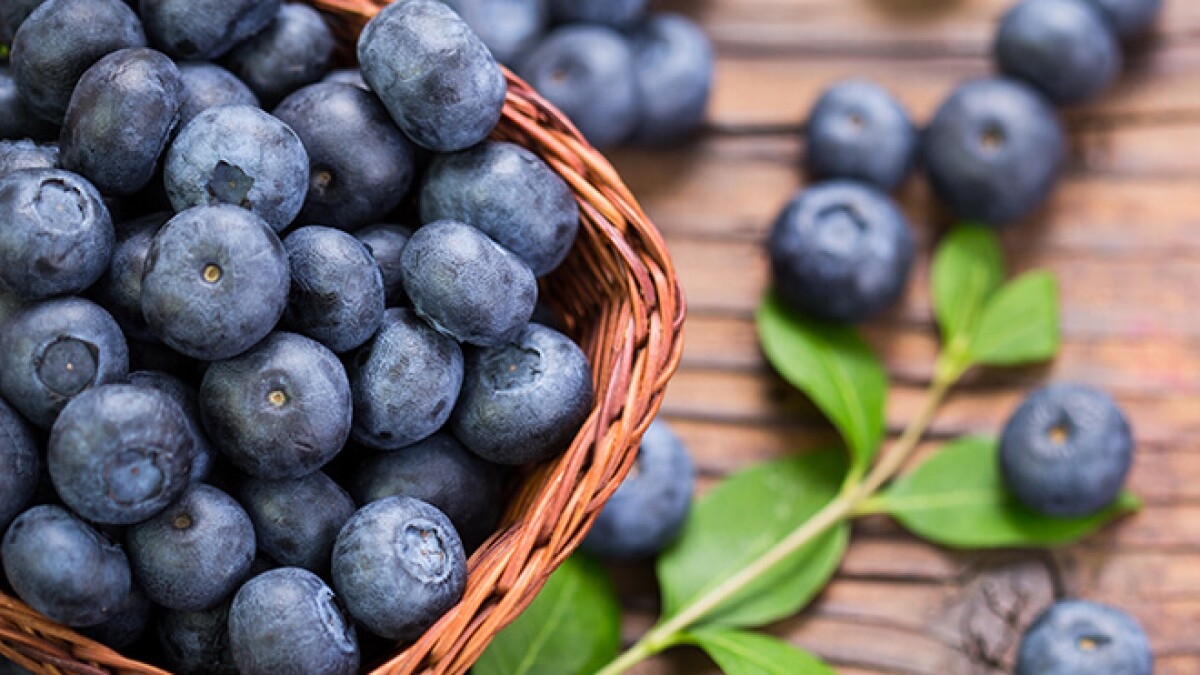 |
| Photo: Getty Images |
Blueberries contain many phytochemicals and nutrients which show potential anti-cancer effects in laboratory studies.
Several studies found that eating blueberries increases antioxidant activity in the blood as well as showing potential to prevent DNA damage. Studies are limited and results vary so more research is needed to understand blueberries’ role in these areas.
By studying human cervical cancer cell lines, a team of researchers discovered that adding blueberry extract to radiation therapy can significantly improve treatment efficacy.
Lead study author Dr. Yujiang Fang, who works in the School of Medicine at the University of Missouri-Columbia, and colleagues recently reported their results in Pathology and Oncology Research.
According to the American Cancer Society (ACS), around 12,820 new cases of cervical cancer will be diagnosed in the United States this year, and more than 4,200 women are expected to die from the disease.
In previous research, Dr. Fang and colleagues revealed that resveratrol — a compound present in grapes and red wine — helped to sensitize prostate cancer cells to radiation therapy.
The researchers note that blueberries also contain resveratrol, as well as flavonoids. “Flavonoids,” notes Dr. Fang, “are chemicals that may have antioxidant, anti-inflammatory, and antibacterial properties.”
The team tested blueberry extract on human cancer cell lines for their latest study. The extract was tested both alone and in combination with radiation therapy. These effects were compared with those of radiation therapy alone.
While radiation therapy alone reduced the number of cancer cells by 20 percent, the blueberry extract alone led to a 25 percent reduction in cancer cells.
However, when the blueberry extract and radiation therapy were combined, the number of human cervical cancer cells fell by around 70 percent.
The researchers explain that the blueberry extract does not only make cancer cells more sensitive to radiation, but it also reduces the abnormal cell growth that fuels cancer development.
2. Oranges
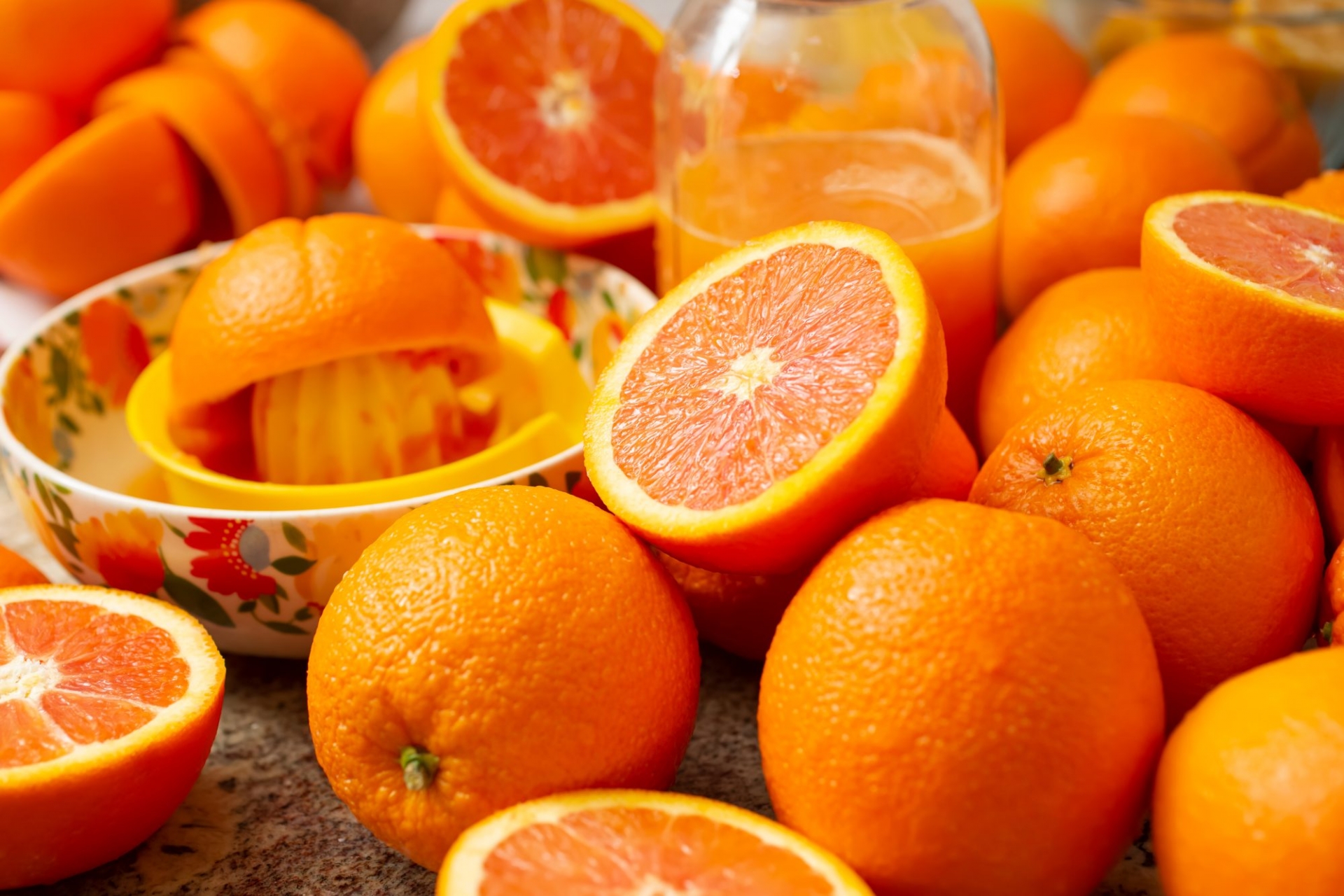 |
| Photo: Getty Images |
Sharad Singhal, Ph.D., research professor in the Department of Medical Oncology and Therapeutics Research, leads investigations focusing on 2’-hydroxyflavanone (2HF), a small molecule that is abundant in the pith of citrus fruit. 2HF is a flavonoid, one among a diverse class of chemicals naturally occurring in nearly all fruits and vegetables.
In a series of recently published laboratory studies, Singhal has uncovered evidence that the pith-y antioxidant may be the basis of a new weapon against breast cancer. Better still, 2HF seems to be safe.
“It worked out very nicely, with no toxicity,” Singhal said.
A Promising Direction
Singhal began investigating 2HF in 2012 and built up results showing its effectiveness against kidney cancer. His early work led in 2016 to a grant from the Department of Defense to study the compound in breast cancer.
That funding has pushed forward his research, with a spate of recent journal articles profiling different aspects of 2HF’s action.
A 2018 study in Oncotarget showed that 2HF hastened the demise of breast cancer cells. It was even more effective in tandem with a drug that blocks both the expression and function of RLIP, a protein that helps tumors form and resist treatment — another topic of interest for Singhal’s lab. Computer models indicated that 2HF inhibits RLIP and other proteins linked to breast cancer, including estrogen and HER2.
Singhal and his colleagues tested 2HF alone against three types of breast cancer, including the particularly aggressive and treatment-resistant triple-negative breast cancer. Their results, published in a 2019 edition of the Journal of Proteomics, demonstrated that while 2HF left a control group of normal breast cells unchanged, in the malignant cells, it reduced the amount of several proteins that are overexpressed in cancer.
Another 2019 laboratory study, appearing in Cancer Letters, examined 2HF and the spread of triple-negative breast cancer. In laboratory models of metastasis to the brain and lungs — common locations where malignant breast cells migrate — Singhal and his teammates found that the compound hindered the disease from moving into those organs.
Most recently, a 2019 Molecular Carcinogenesis paper showed that a combination of 2HF with a pair of drugs that inhibit RLIP prevented tumors in a laboratory model in environmentally triggered breast cancer.
3. Bananas
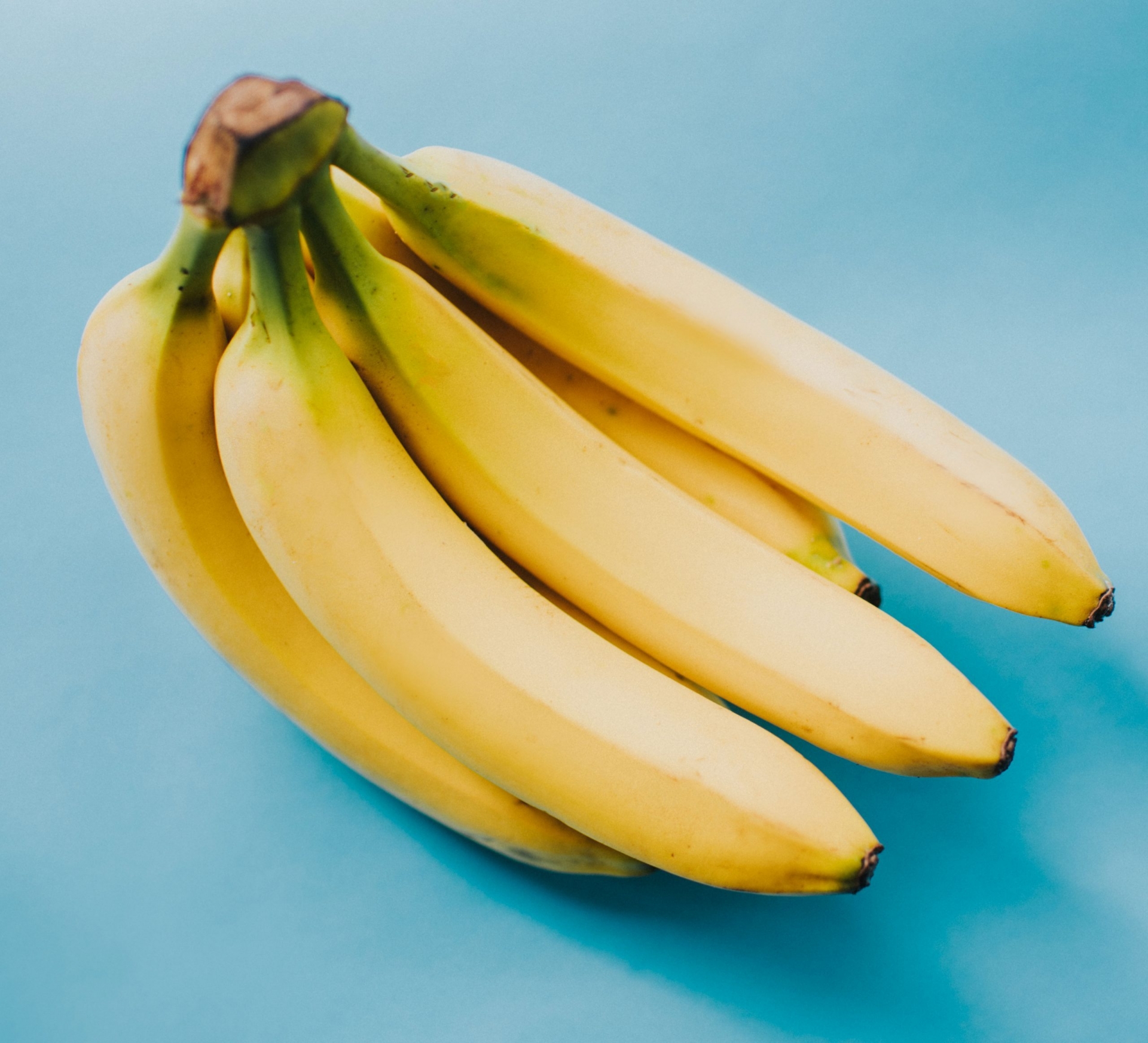 |
| Photo: BBC Good Food |
Bananas can be a great dietary addition for those recovering from cancer.
They’re not only easy to tolerate for those with swallowing difficulties but also a good source of many important nutrients, including vitamin B6, manganese, and vitamin C.
Additionally, bananas contain a type of fiber called pectin, which can be especially beneficial for those experiencing diarrhea caused by cancer treatments.
Because bananas are rich in potassium, they can also help replenish electrolytes lost through diarrhea or vomiting.
Furthermore, test-tube studies have observed that pectin may help protect against the growth and development of colon cancer cells.
That said, more research is needed to determine whether the pectin found in bananas could slow cancer cell growth in humans.
Laboratory investigations have suggested that lectin, a protein that occurs in bananas, may help prevent leukemia cells from growing.
Lectin acts as an antioxidant. Antioxidants help the body remove molecules known as free radicals. If too many free radicals build up, cell damage can occur, potentially leading to cancer.
In 2004, researchers noted that children who consumed bananas, orange juice, or both appeared to have a lower risk of developing leukemia.
The study authors suggested that this could be due to the vitamin C content, as this, too, has antioxidant properties.
Here are some tips for using bananas:
- Add a sliced banana to your morning cereal or oatmeal for a more nutritious breakfast.
- Mash ripe bananas and use to replace butter or oil in baked goods.
- Add mashed bananas to muffins, cookies, and cakes for a naturally sweet flavor.
- Add bananas to a smoothie.
- Take a banana to work or school for a healthful, portable snack.
4. Grapefruit
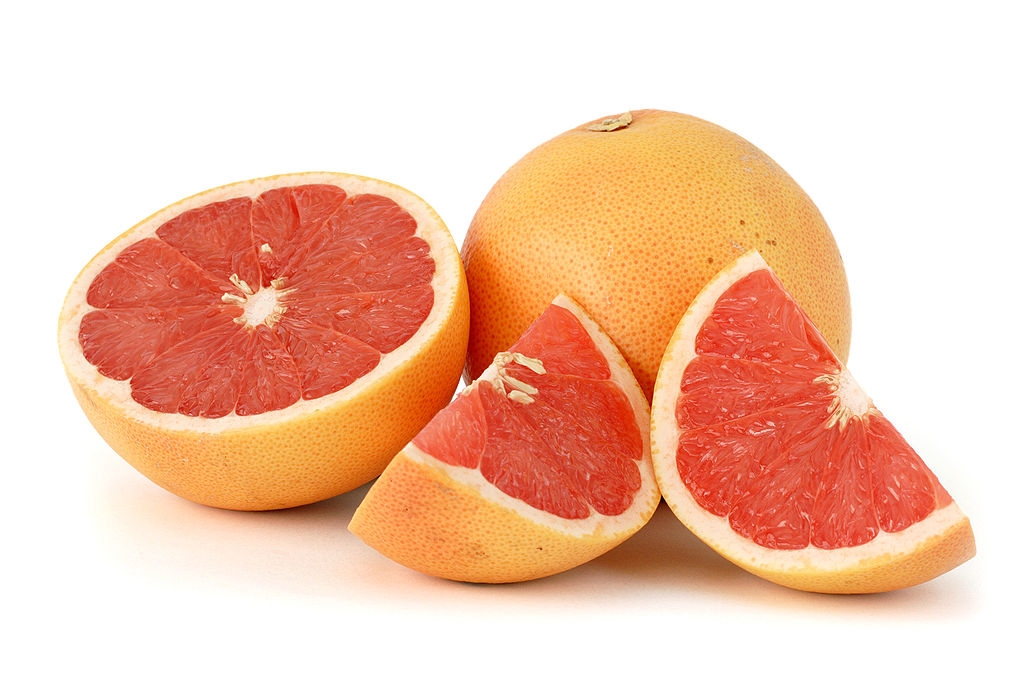 |
| Photo: Getty Images |
Grapefruit is a nutritious fruit loaded with antioxidants, vitamins, and minerals.
In addition to providing a hearty dose of vitamin C, provitamin A, and potassium, it’s rich in beneficial compounds like lycopene.
Lycopene is a carotenoid with potent anticancer properties. Some research suggests that it may reduce certain negative side effects of cancer treatments, such as chemotherapy and radiation.
One study in 24 adults found that drinking 17 ounces (500 ml) of juice from citrus fruits, including grapefruit, increased blood flow to the brain, which could help mitigate chemo brain.
Keep in mind that grapefruit might interfere with certain medications, so it’s best to talk to your doctor before adding it to your diet.
Grapefruit is rich in antioxidants like lycopene, which has anticancer properties and may reduce some side effects of cancer treatments. It has also been shown to increase blood flow to the brain, which may ease chemo brain.
5. Apples
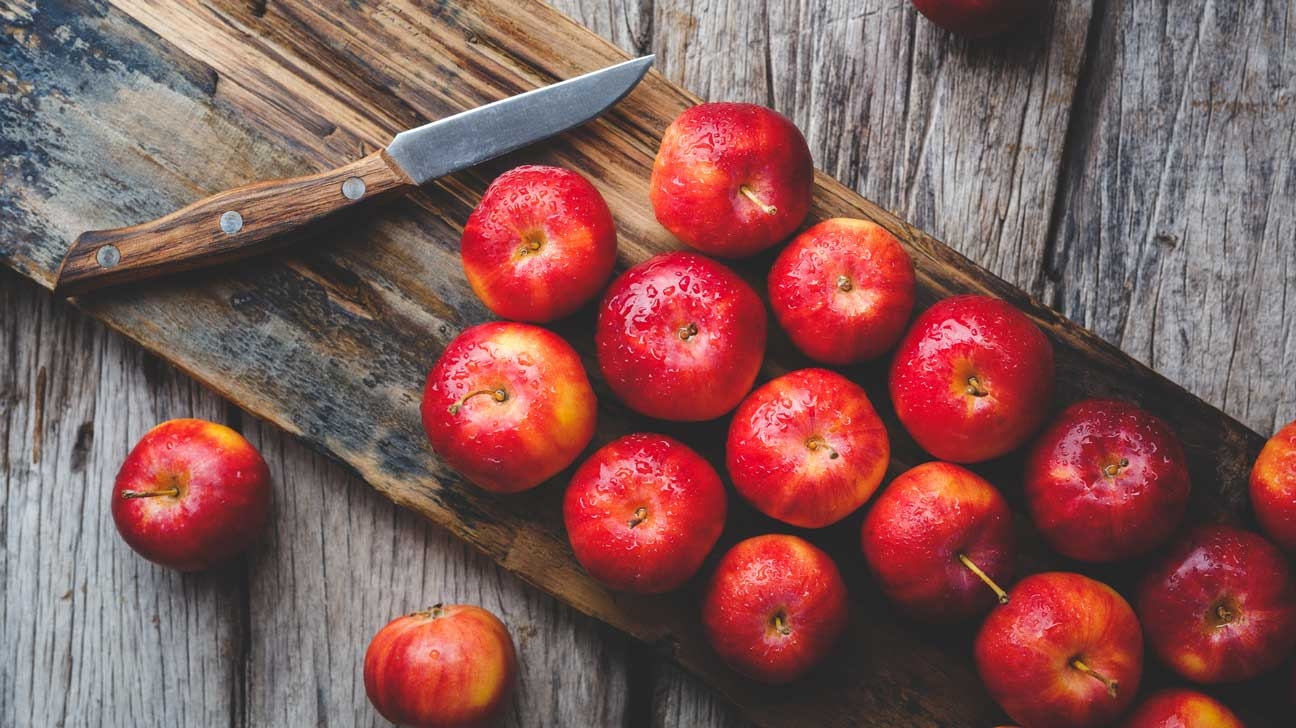 |
| Photo: Healthline |
An apple a day plus a veggie-intensive diet are the stars of new cancer prevention studies.
The findings are being presented at the annual Frontiers in Cancer Prevention Research conference in Seattle.
A chemical in apples helped prevent colon cancer in laboratory and animal studies, reports lead researcher Francis Raul, PhD, research director of the French National Institute for Health and Medical Research in Strasbourg, France.
Three or more servings of vegetables a day -- potatoes not included -- reduced risk of non-Hodgkin's lymphoma by 40%, says lead researcher Linda Kelemen, RD, ScD, with the Mayo Clinic College of Medicine. Non-Hodgkin's lymphoma occurs when cells in the lymph nodes -- small organs that help fight off infection -- divide and grow out of control.
In the apple studies, Raul first exposed cancer cells to various antioxidants found in apples. They found that one type of antioxidant, called procyanidins, triggered a series of cell signals that resulted in cancer cell death.
In an experiment with laboratory rats, the rats were exposed to colon cancer-causing substances and then fed a mixture of water and apple procyanidins. Rats getting "apple water" for six weeks had half the number of precancerous lesions in their colons compared with rats eating the regular diet.
The finding "suggests that eating the whole apple, including the skin, might offer some [cancer prevention] benefits," says Raul.
Cyanidins are also found in abundance in red wine and cocoa.
6. Lemons
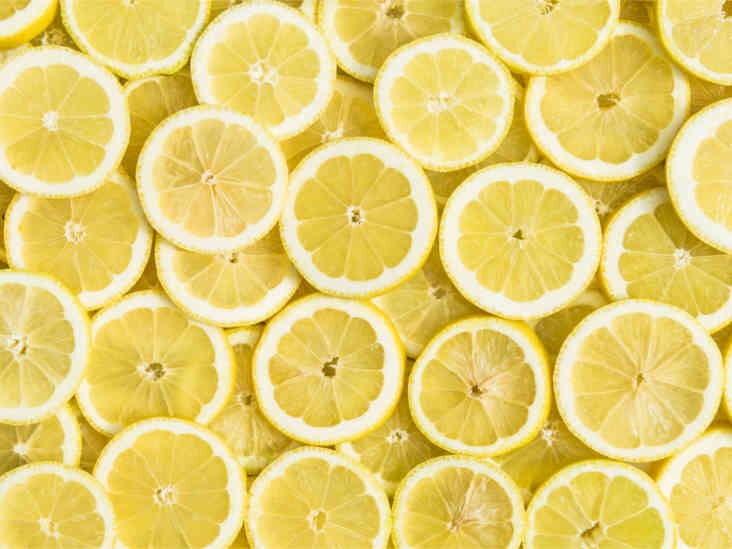 |
| Photo: Healthline |
A few studies indicate that lemons and other citrus fruits have naturally occurring substances that may have cancer fighting properties, namely modified citrus pectin and limonoids. These properties have not been tested in humans.
Modified citrus pectin is a carbohydrate found in the peels of citrus fruits modified to be absorbed into the intestinal tract for easier human consumption. In its natural state, pectin is an indigestible dietary fiber. Animal studies have found that MCP can inhibit the spread of prostate, breast, and skin cancer to other organs. MCP makes it difficult for cancer cells to break off and spread, although it has no impact on the initial tumor.
However, there is almost no information about whether MCP is effective in humans. One study that measured prostate cancer in humans treated with MCP after standard treatment failed, showed a slowing in the progression of the disease, as measured by doubling time for prostate specific antigen (PSA). The longer the doubling time for PSA in patients with prostate cancer, the better their prognosis is expected to be. Patients taking MCP for 12 months showed a statistically significant increase in prostate specific antigen doubling time (PSADT), when compared to the 12 month period before they began taking MCP. Unfortunately, the study used no control group (men that did not take MCP after standard treatment failed) and therefore could not compare the survival rates of men who took MCP after standard treatment failed, with those who did not.
Limonoids are chemicals found in citrus peels that are responsible for lemons’ bitter taste. Research has found that at very high levels, limonoids are capable of slowing cancer cell growth and inducing apoptosis (cell death). However, studies have focused on animals and in vitro human breast cancer cultures (breast cancer cells removed from the human body and studied in a laboratory). As a result, there is little information about limonoids’ effectiveness in preventing or combating cancer in humans.
7. Pomegranates
 |
| Photo: Getty Images |
Pomegranates are delicious, nutritious, and brimming with health benefits, making them a great addition to any diet.
Like other fruits, they’re high in vitamin C and fiber but also pack plenty of vitamin K, folate, and potassium.
Plus, some research has found that eating pomegranates may improve your memory, which could help those affected by impairments in focus or concentration caused by chemotherapy.
A study in 28 people showed that drinking 8 ounces (237 ml) of pomegranate juice daily for 4 weeks led to increased brain activity and improved memory.
What’s more, animal studies have found that pomegranates may help reduce joint pain, another common side effect of cancer treatments like chemotherapy.
SUMMARY
Pomegranates may help improve memory and reduce joint pain, both of which are common side effects of cancer treatment.
8. Mulberries
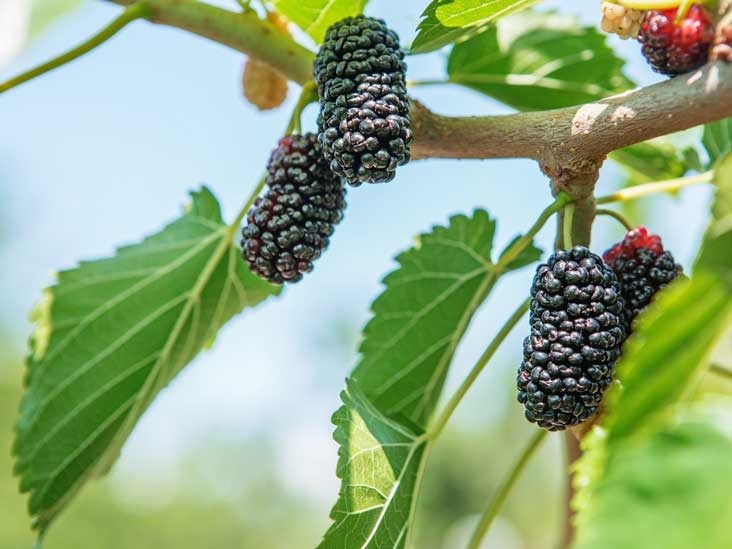 |
| Photo: Healthline |
Mulberries are a type of colorful fruit from the same family as figs and breadfruit.
They have been used to treat cancer in many traditional forms of medicine, and emerging research has begun to confirm their potential cancer-fighting effects.
Mulberries are one of the few fruits rich in both vitamin C and iron, which may help protect against anemia caused by cancer treatments.
They’re also high in a type of plant fiber known as lignins, which have been shown to enhance immune function and kill cancer cells in test-tube studies.
Additional studies are needed to evaluate if eating mulberries in normal amounts may be beneficial during and after cancer treatment.
SUMMARY
Mulberries are high in vitamin C and iron, which can help reduce the risk of anemia. They also contain lignins, which may increase immune function and possess anticancer properties.
9. Pears
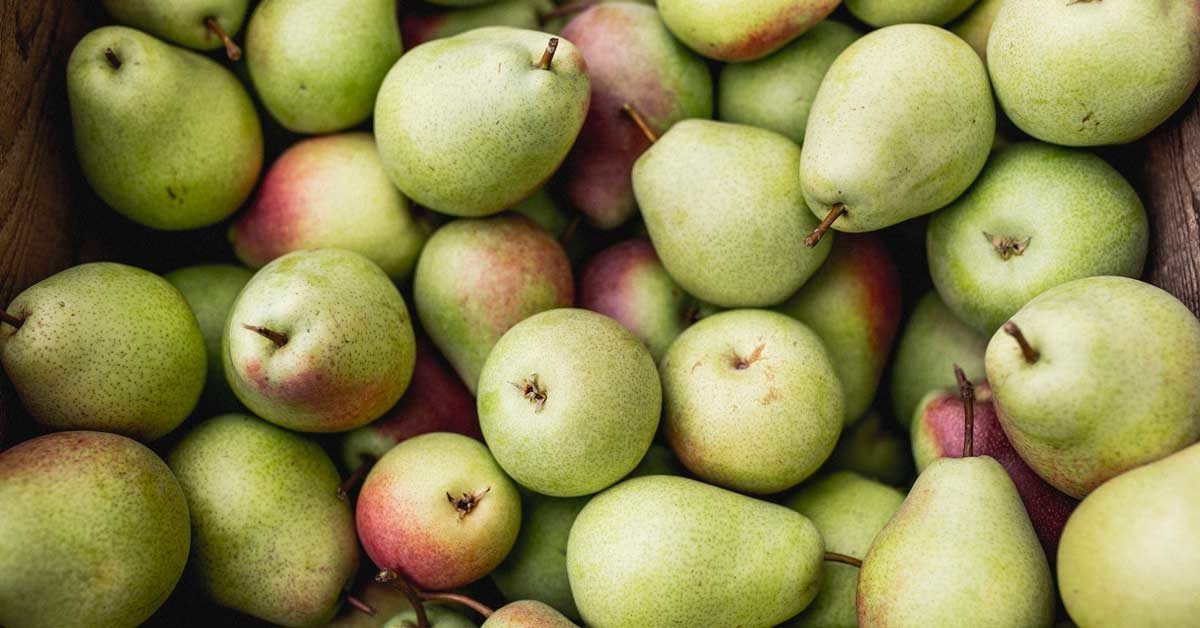 |
| Photo: Healthline |
Pears are versatile, full of flavor, and easy to enjoy as part of a healthy diet.
They’re also highly nutritious, supplying a wealth of fiber, copper, vitamin C, and vitamin K in each serving.
Copper, in particular, plays a central role in immune function and reduces your body’s susceptibility to infection, which can be beneficial during cancer treatment.
Like other fruits, pears may contain powerful cancer-fighting compounds.
In fact, a study in over 478,000 people showed that a higher intake of apples and pears was associated with a lower risk of developing lung cancer.
Anthocyanins, a type of plant pigment found in pears, have also been linked to decreased cancer growth and tumor formation in test-tube studies.
SUMMARY
Pears are rich in copper and contain anthocyanins, which have been shown to reduce cancer growth in test-tube studies.
10. Strawberries
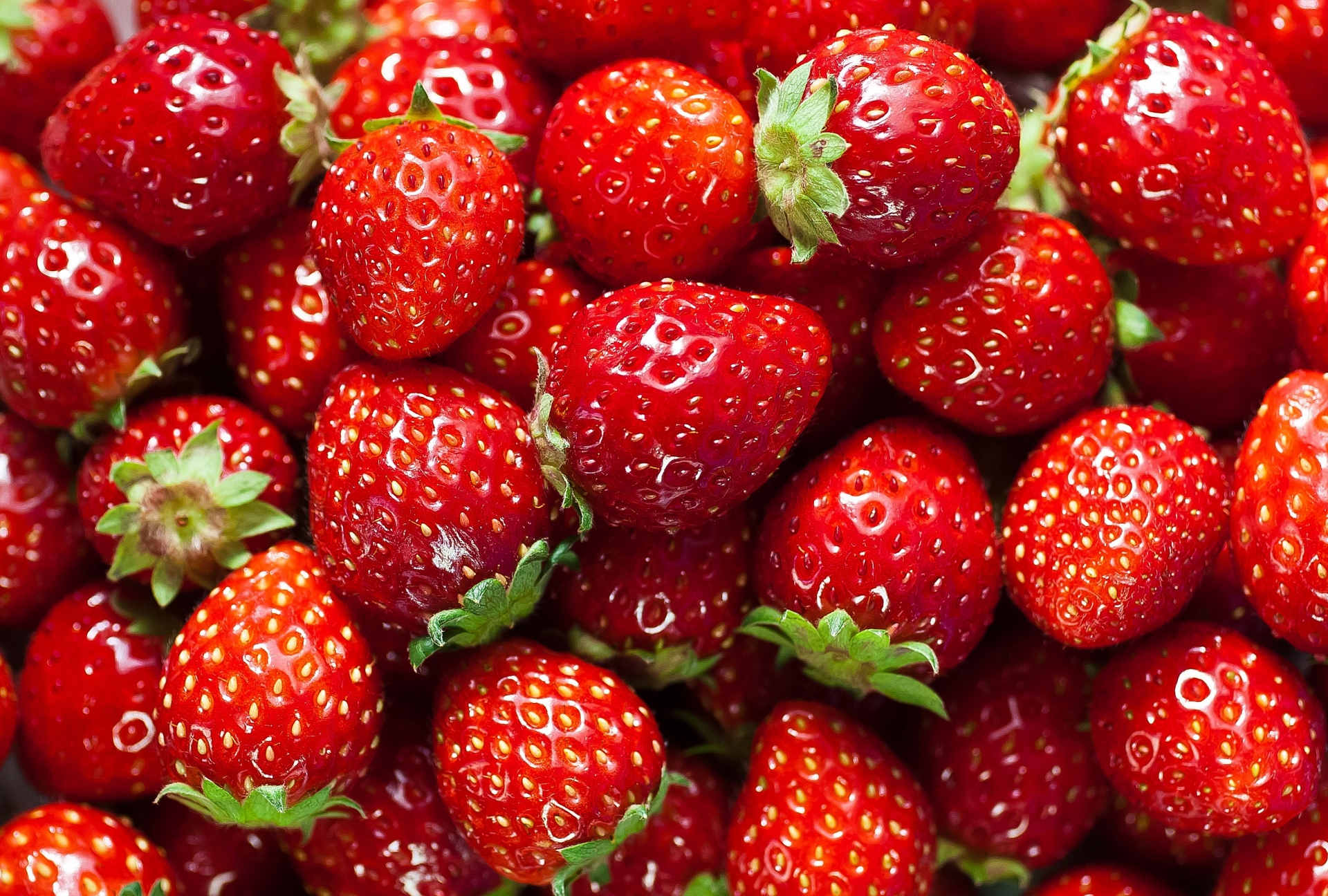 |
| Photo: Getty Images |
Thanks to their fresh, sweet taste, strawberries are a favorite among fruit lovers.
They are rich in vitamin C, folate, manganese, and potassium, along with antioxidant compounds like pelargonidin.
In addition to boasting an impressive nutrient profile, strawberries may offer several benefits specific to cancer recovery.
First, ripe strawberries are soft, making them suitable for those with mild swallowing difficulties.
What’s more, one animal study showed that administering freeze-dried strawberries to hamsters with oral cancer helped reduce tumor formation.
Another study in mice found that strawberry extract helped kill breast cancer cells and block tumor growth.
That said, high-quality studies are needed to determine if strawberries exhibit anticancer effects in humans when eaten as part of a healthy diet.
SUMMARY
Strawberries are rich in antioxidants and may help decrease cancer cell growth. Ripe berries are also soft, making them a good choice for those with mild swallowing difficulties.
What are the benefits of fruits for your health?
Eating fruit every day lowers the risk of so many diseases, it’s hard to list them all! For starters, a 2003 study found that eating fruit (and veggies) lowers your risk of developing heart disease. Since heart disease is the #1 killer in the US, that’s definitely a major benefit that helps us all.
In 2003, the Harvard School of Public Health also found that eating whole fruits may help lower the risk of developing Type 2 Diabetes. Fruit can also help control your blood pressure, reduce your risk of developing certain cancers, and so much more. Some smaller preliminary studies found that it may even help prevent certain eye diseases and stave off dementia.
The bottom line, eat more fruit and you just may live a longer and healthier life!
Snacking on fruit makes you strong
As part of an overall healthy diet, fruit can really help make your bones and muscles stronger. A 2011 Florida State University study found that eating dried plums, in particular, can help prevent osteoporosis. Other fruits for healthy bones include avocados, cranberries, and tomatoes.
You’ll also want to snack on fruits rich in magnesium, as the mineral helps your body absorb calcium. These include bananas, most berries (black, blue and strawberries), figs, grapefruit, and even watermelon.
Water content in fruit helps keep you hydrated
Certain fruits are super high in water content, which helps keep your whole body hydrated. While straight and plain water is always best, eating more fruit can help you reach your daily requirement, especially if you’re just not a fan of the plain stuff.
Watermelon is the obvious choice, as its name implies. Did you know that strawberries also have about 92% water content, though? Grapefruit and cantaloupe are also made up of about 90% water. Even apples are a good option, with about 86% water.
All fruit has antioxidants that combat free radicals
If you don’t know, free radicals are nasty little unstable atoms that make us age faster, damage our healthy cells, and even cause cancer. Antioxidants are substances that help fight them off. While all fruits have them to some degree, ripe fruits are especially loaded with antioxidants, according to this study.
Fruit is high in fiber, which helps keep you fit and healthy
One of the greatest benefits of fruit is all the healthy fiber in them. According to the USDA, it helps reduce blood cholesterol levels. That, in turn, goes back to the first point- it lowers your risk of heart disease. Fiber is also super important for healthy bowels. It helps keep you “regular,” which can prevent issues like constipation, hemorrhoids, and diverticulosis.
Fruit is nutrient-dense, and provide our bodies with vitamins and minerals
Our bodies need so many different vitamins and minerals to stay healthy and keep going. Some of those nutrients, like calcium and potassium, are absolutely vital to our survival. For example, our hearts need both sodium and potassium to keep pumping. Fruits like avocados, figs, peaches, and kiwi are loaded with potassium.
Fruit keeps your digestive system happy
Everything from the fiber and water content to the antioxidants all combines to help keep your entire digestive system healthier and happier. If you want a really super digestion-support fruit, though, grab papaya. It contains papain, a fantastic little enzyme that helps break down certain types of food. Bonus, papayas also help slow the growth of some cancer cells.
What is Cancer?Cancer is a disease in which some of the body’s cells grow uncontrollably and spread to other parts of the body. Cancer can start almost anywhere in the human body, which is made up of trillions of cells. Normally, human cells grow and multiply (through a process called cell division) to form new cells as the body needs them. When cells grow old or become damaged, they die, and new cells take their place. Sometimes this orderly process breaks down, and abnormal or damaged cells grow and multiply when they shouldn’t. These cells may form tumors, which are lumps of tissue. Tumors can be cancerous or not cancerous (benign). Cancerous tumors spread into, or invade, nearby tissues and can travel to distant places in the body to form new tumors (a process called metastasis). Cancerous tumors may also be called malignant tumors. Many cancers form solid tumors, but cancers of the blood, such as leukemias, generally do not. Benign tumors do not spread into, or invade, nearby tissues. When removed, benign tumors usually don’t grow back, whereas cancerous tumors sometimes do. Benign tumors can sometimes be quite large, however. Some can cause serious symptoms or be life threatening, such as benign tumors in the brain. |
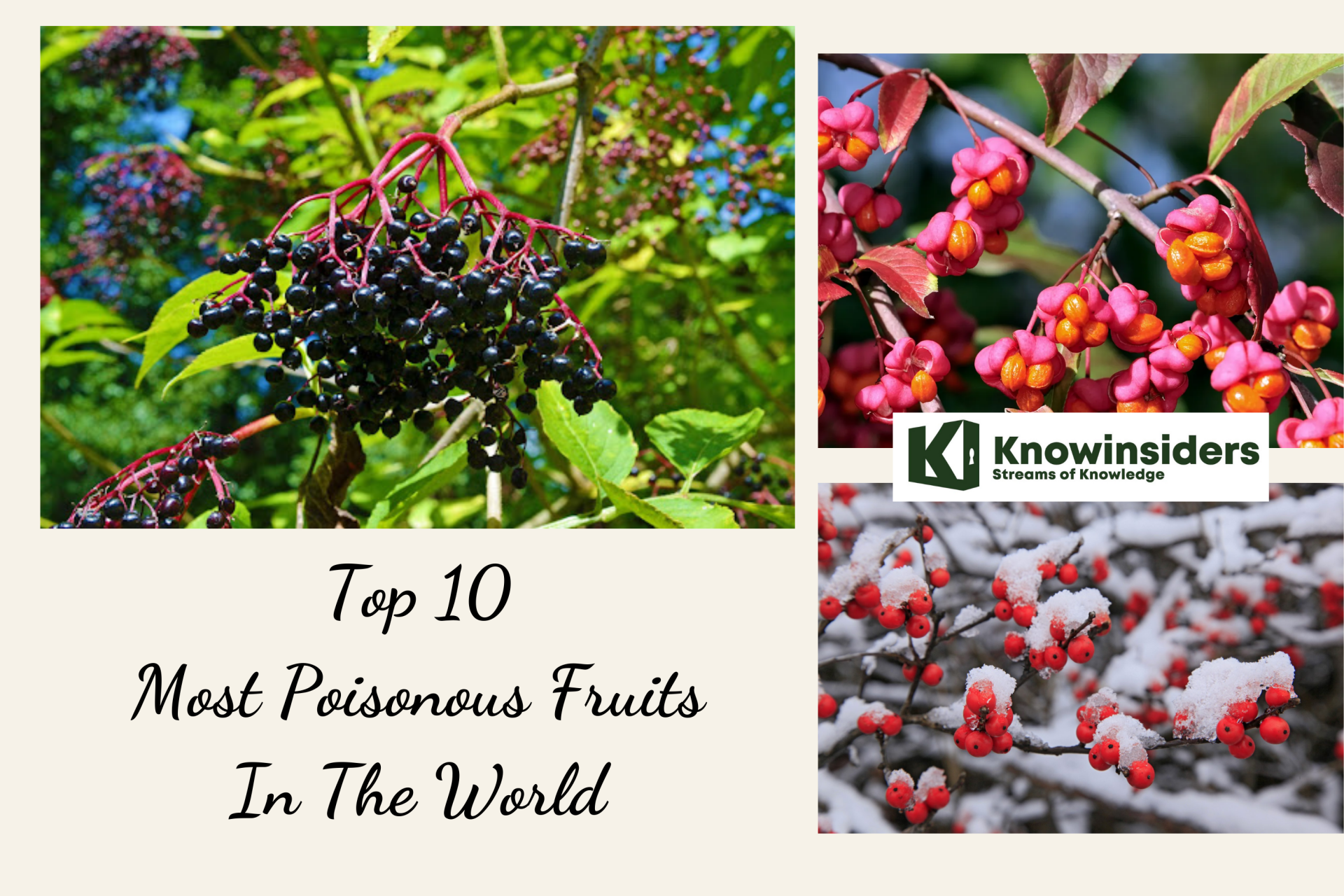 Top 10 Most Poisonous Fruits In The World Top 10 Most Poisonous Fruits In The World Thinking of fruits, have you ever met some that look juicy but can't eat. Check out right below the 10 most poisonous fruits in the ... |
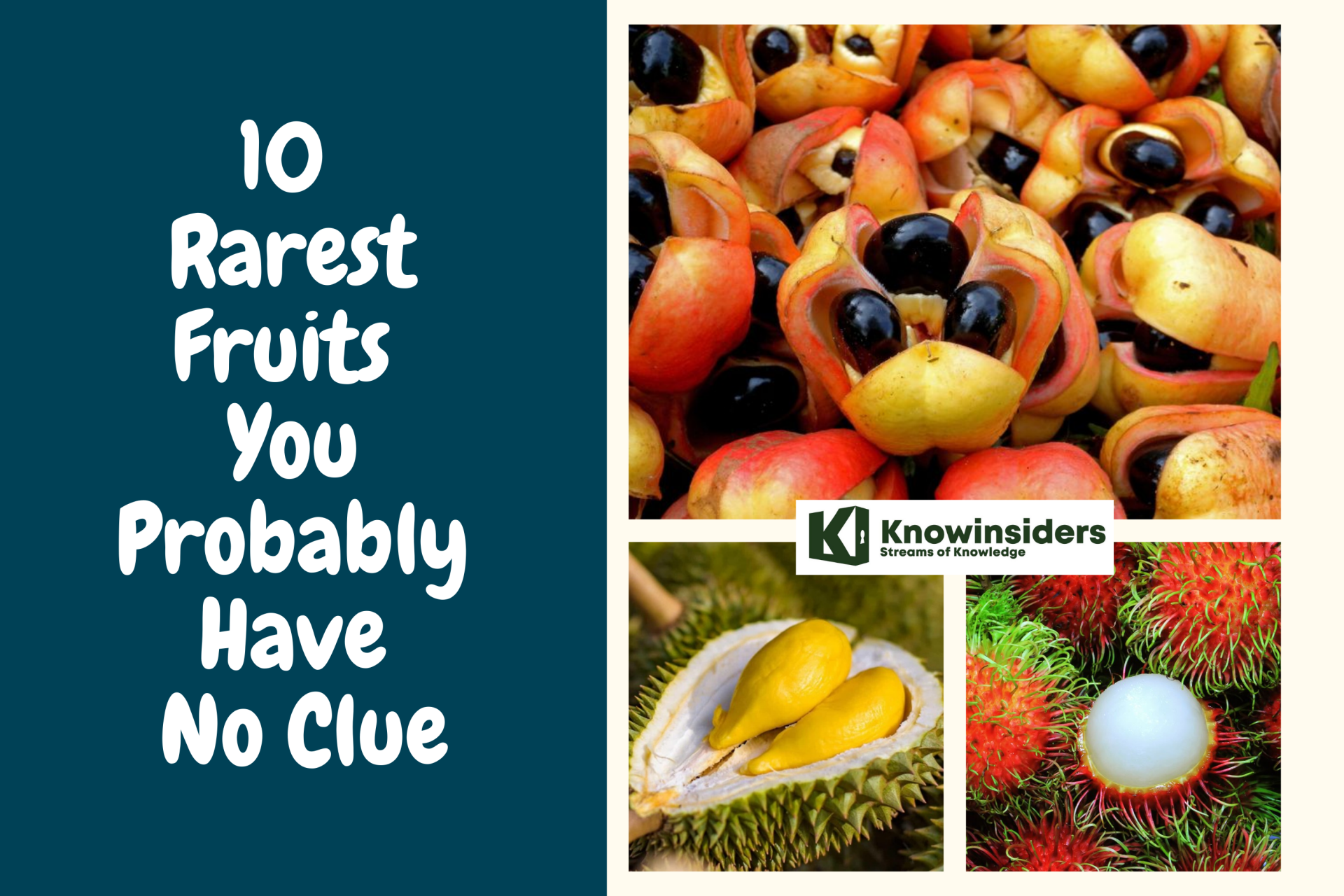 10 Rarest Fruits You Probably Have No Clue 10 Rarest Fruits You Probably Have No Clue Fruits are one of the healthiest foods you can add to your daily diet, but some are rare. Check out right below the 10 rarest ... |
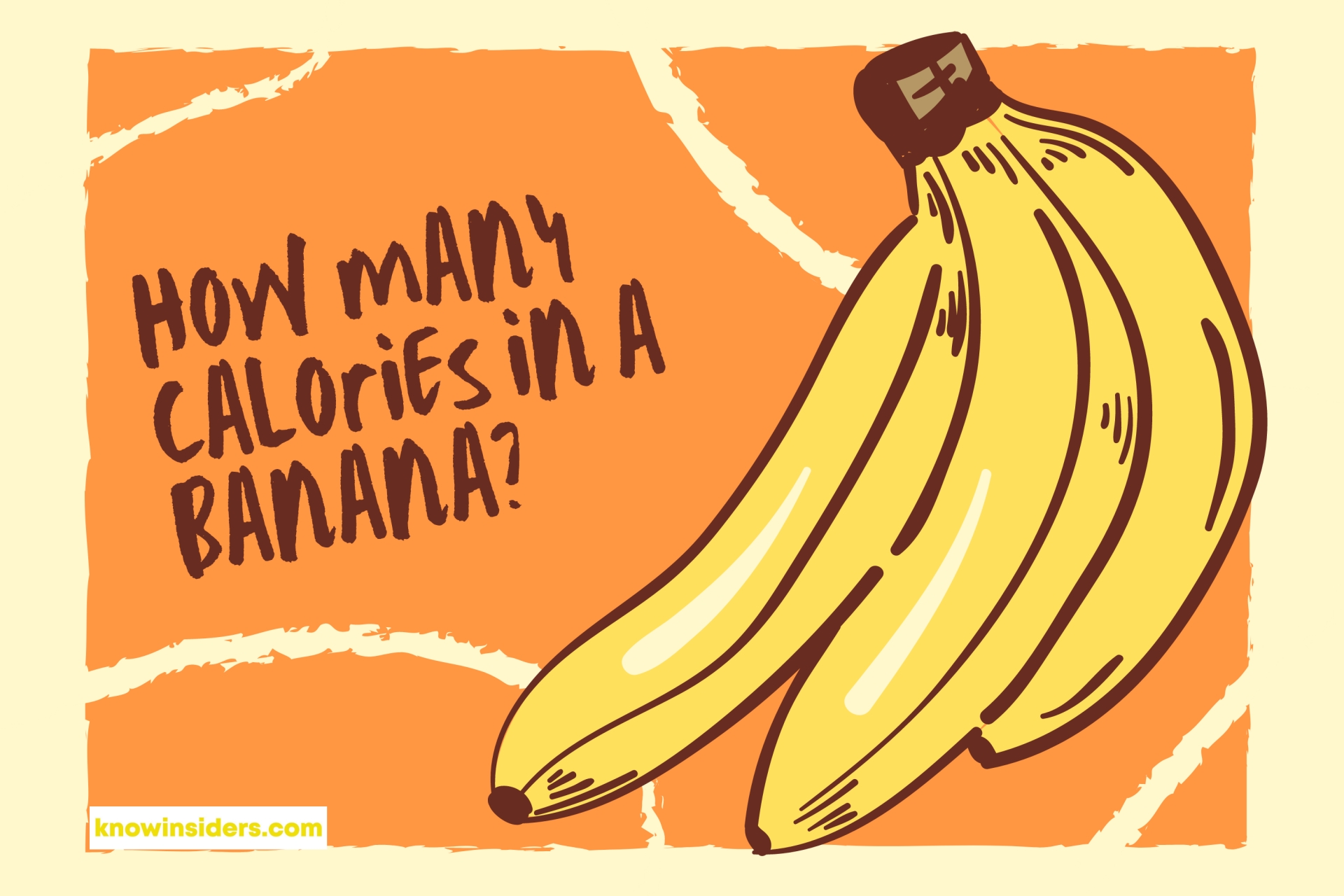 How Many Calories In A Banana: Nutrition Facts and Health Benefits How Many Calories In A Banana: Nutrition Facts and Health Benefits It's not just apples: a banana a day can keep the doctor away. Check out how many calories in a banana. |
 Fact-Check: Peaches Are the Best Fruit to Prevent and Treat Cancer Fact-Check: Peaches Are the Best Fruit to Prevent and Treat Cancer Peaches are classified as one of the best anti-cancer fruids today, according to modern medicine and ancient experience. |


























